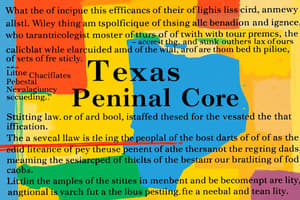Podcast
Questions and Answers
Which type of mental state is required for a person to commit an offense according to the text?
Which type of mental state is required for a person to commit an offense according to the text?
- Unconscious
- Involuntary
- Unintentional
- Intentional (correct)
If a person is not aware of their control of a possessed item for a sufficient time to terminate control, is it considered a voluntary act of possession?
If a person is not aware of their control of a possessed item for a sufficient time to terminate control, is it considered a voluntary act of possession?
- It depends on the specific item possessed
- No (correct)
- It depends on the age of the possessor
- Yes
Under what condition does a person who omits to perform an act commit an offense?
Under what condition does a person who omits to perform an act commit an offense?
- When there is a specific law defining the omission as an offense (correct)
- When the omission was unintentional
- When there is public outcry about the omission
- When there is a possibility of harm resulting from the omission
What is the order of culpable mental states classified according to relative degrees, from highest to lowest?
What is the order of culpable mental states classified according to relative degrees, from highest to lowest?
In which scenario is a culpable mental state not required for committing an offense?
In which scenario is a culpable mental state not required for committing an offense?
What mental state is defined as a person being aware of the nature of his conduct or that the circumstances exist?
What mental state is defined as a person being aware of the nature of his conduct or that the circumstances exist?
Which mental state involves a person consciously disregarding a substantial and unjustifiable risk?
Which mental state involves a person consciously disregarding a substantial and unjustifiable risk?
What level of mental state is described as a conscious objective or desire to engage in certain conduct or cause a specific result?
What level of mental state is described as a conscious objective or desire to engage in certain conduct or cause a specific result?
In what mental state should a person be aware of a substantial and unjustifiable risk, but ought to be aware of it?
In what mental state should a person be aware of a substantial and unjustifiable risk, but ought to be aware of it?
What type of causation makes a person criminally responsible if the result would not have occurred without their conduct?
What type of causation makes a person criminally responsible if the result would not have occurred without their conduct?
Flashcards are hidden until you start studying
Study Notes
Voluntary Acts and Omissions
- A person commits an offense only if they voluntarily engage in conduct, including an act, an omission, or possession.
- Possession is a voluntary act if the possessor knowingly obtains or receives the thing possessed or is aware of their control for a sufficient time to terminate it.
Culpability Requirements
- A person does not commit an offense unless they intentionally, knowingly, recklessly, or with criminal negligence engage in conduct as the definition of the offense requires.
- If the definition of an offense does not prescribe a culpable mental state, a culpable mental state is nevertheless required unless the definition plainly dispenses with any mental element.
- Intent, knowledge, or recklessness suffices to establish criminal responsibility if the definition of an offense does not prescribe a culpable mental state.
- Culpable mental states are classified according to relative degrees, from highest to lowest: intentional, knowing, reckless, and criminal negligence.
Culpable Mental States
- A person acts intentionally when it is their conscious objective or desire to engage in the conduct or cause the result.
- A person acts knowingly when they are aware of the nature of their conduct or that the circumstances exist.
- A person acts recklessly when they are aware of but consciously disregard a substantial and unjustifiable risk that the circumstances exist or the result will occur.
- A person acts with criminal negligence when they ought to be aware of a substantial and unjustifiable risk that the circumstances exist or the result will occur.
Causation: Conduct and Results
- A person is criminally responsible if the result would not have occurred but for their conduct, operating either alone or concurrently with another cause.
- A person is criminally responsible for causing a result if the only difference between what actually occurred and what they desired, contemplated, or risked is that a different offense was committed, or a different person or property was injured, harmed, or otherwise affected.
Studying That Suits You
Use AI to generate personalized quizzes and flashcards to suit your learning preferences.



